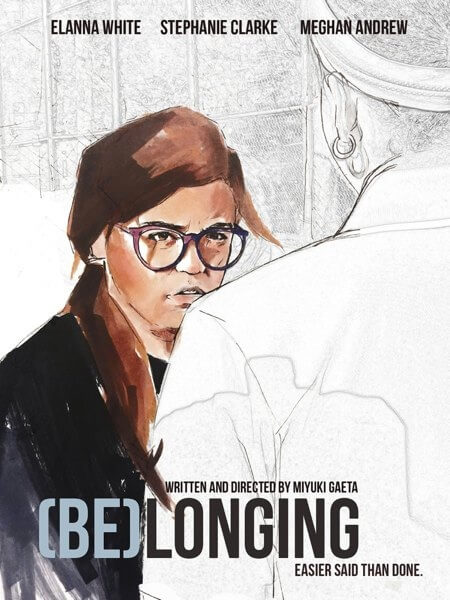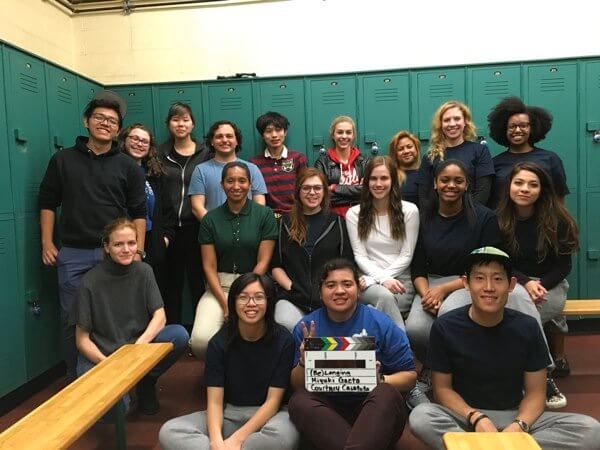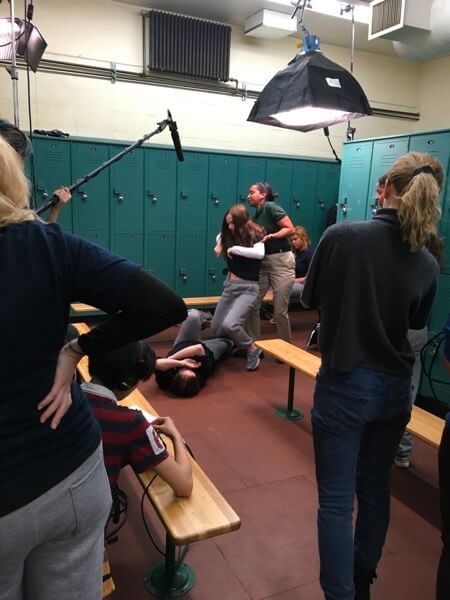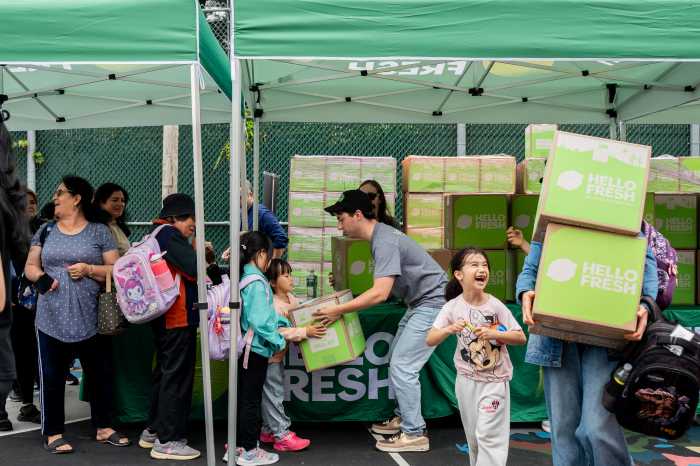By Tammy Scileppi
An emerging filmmaker behind an NYU short set in Queens hopes her project will contribute to the ongoing conversation about bullying in schools, and the acceptance of the LGBTQ community.
Screenwriter and director Miyuki Gaeta, draws on her own difficult high school years in her film, entitled “(Be)longing,” which explores the struggles and challenges of young people who are learning who they are, and longing to belong.
The film follows Leilani, a shy and awkward high school freshman, as she forms an unlikely bond with her Physical Education teacher, Misha, who is rumored to be a lesbian, leading both to be targeted by the popular — and closeted — Rylee and her mean-girl posse.
“As the title ‘(Be)longing’ suggests, all three long to fit in and struggle to find a way to belong in this difficult world and the expectations of society,” said Gaeta.
Since graduating from NYU’s Tisch School of the Arts with a BFA last spring, Gaeta has moved back to California, but she shot “(Be)longing” over three days in November 2015 in Briarwood, where she cast the locker room, hallways, and fields of Archbishop Molloy High School as her fictional Henderson High. And all four actors playing the film’s main characters still call Queens home — three are from Astoria and one hails from Jamaica.
“Being a teenager is hard enough, because on top of trying to figure out who you are, you’re also influenced by social media and what society considers to be cool at your age. Therefore, it’s hard to stand up for what you believe in when you’re also worried about being liked,” said Astoria resident Katheryn Parades, who plays Sunny, one of Henderson High School’s aspiring “mean girls,” who strives to become one of Rylee’s bitchy sidekicks.
Lifelong Astorian Elanna White, who plays shy, misfit freshman Leilani, said her portrayal of the bullying victim made her recall a time when she also experienced “what life is like in a situation where you don’t quite fit in.”
“Leilani is on the brink of exploring her own sexuality, which is a story that is so important and relevant for our current social climate. At the end of the movie, she ends up being the one with wisdom beyond her years that she didn’t even realize she had, said White.”
To play the role of Rylee — the bullying leader of the school’s popular clique — Meghan Andrews, another Astoria-based actor, said she drew on her character’s hidden vulnerability — insecurity about her own closeted sexuality.
“Her repressed insecurity leads to defensive anger, which she takes out on Leilani. On the outside, she picks on her, garnering laughs and respect from her friends. However, there is clearly a lot of sadness and repression beneath her hard exterior. A large part of me finding Rylee’s character was identifying her defense mechanisms, digging down to the pain underneath it all, and seeing how I could personally relate to that suffering,” said Andrews.
“What the film really is saying is that, yes, we all want to fit in, but no matter what kind of reputation we uphold, we are all going through some kind of inner struggles. Some people just have more of a well-formed facade than others,” Gaeta added.
Gaeta grew up openly gay in a predominately conservative-Christian community in Southern California and her struggles in school formed the basis for “(Be)longing.”
“In elementary school, my classmates would tease me and casually call me a ‘dyke,’ but I never knew what any of it meant. So, when I started attending junior high, and there was a big rumor that my PE teacher was gay, I instantly gravitated to her,” Gaeta recalled.
Her confident, gracious teacher became a role model for Gaeta, and helped her persevere in the face of constant bullying.
“Whether she knew it or not, she was really a totem pole in me surviving the everyday taunts and slurs thrown at me. If this adult was happily living her life the way she wanted, then that was enough hope for me to get through the day. This is something I really wanted Misha, the PE teacher in the film, to embody.”
Leilani’s relationship with her PE teacher Misha, “was the embodiment of my relationship with my PE teacher, and Leilani’s relationship with Rylee, the bully, is that of me and my classmates,” said Gaeta. “Being one of the only ‘out’ gay kids in my school, definitely put a bull’s eye on my back. I was bullied a lot and really felt like a target. I didn’t feel wanted, I felt alone.”
Gaeta said representation of young LGBTQ role models really matters.
“If I had seen more representations of myself in the media, I think it would’ve made my time in high school a little easier,” said Gaeta, “I hope that diversity continues to grow in the industry, because I realize how many of us need to hear and see ourselves authentically. It is my hope to continue to make content that I know I needed to see growing up.”
Though the storyline hinges on the LGBTQ experience, Gaeta thinks her film is relevant to all people regardless of orientation.
“I think many people can relate to being bullied or the dreaded feeling of having to attend high school as a victim,” she said. “I can’t say the film will have this kind of far-reaching affect, but maybe someone will retink their approach on how they associate with peers.”
Gaeta said that at the very least, she wants her audience “to experience a perspective they probably never thought of. To step into the character’s shoes and experience the world as Leilani, Misha, or Rylee.”
Gaeta has submitted “(Be)longing” to several film festivals, but fame and glory are not her main objectives with the film.
“I’d also be content enough with it being a small-scale thing, and if someone takes an idea or thought away from it, then I think I’ve definitely done my job and will call that a success for the film,” said Gaeta, who plans on releasing her project on YouTube and Vimeo.
“Though some people won’t relate to the subject matter,” said Gaeta, “my hope is that ‘(Be)longing’ will simply give a voice to those who usually aren’t given one, and inspire them to share their unique stories – because someone out there may really need it.”





































